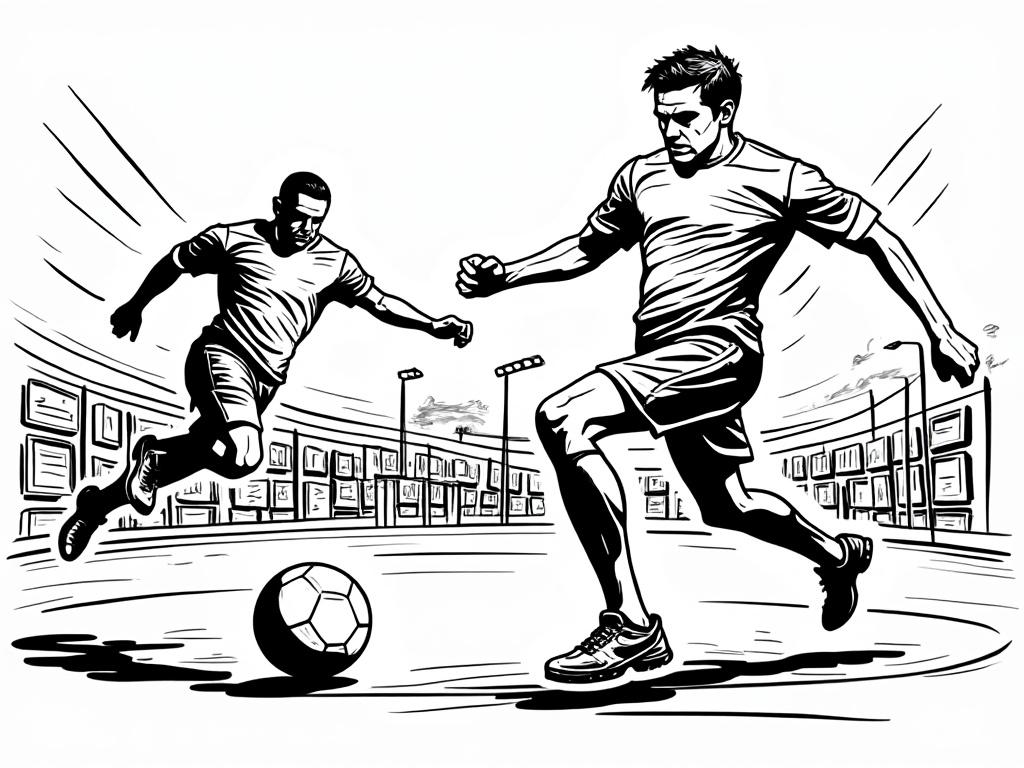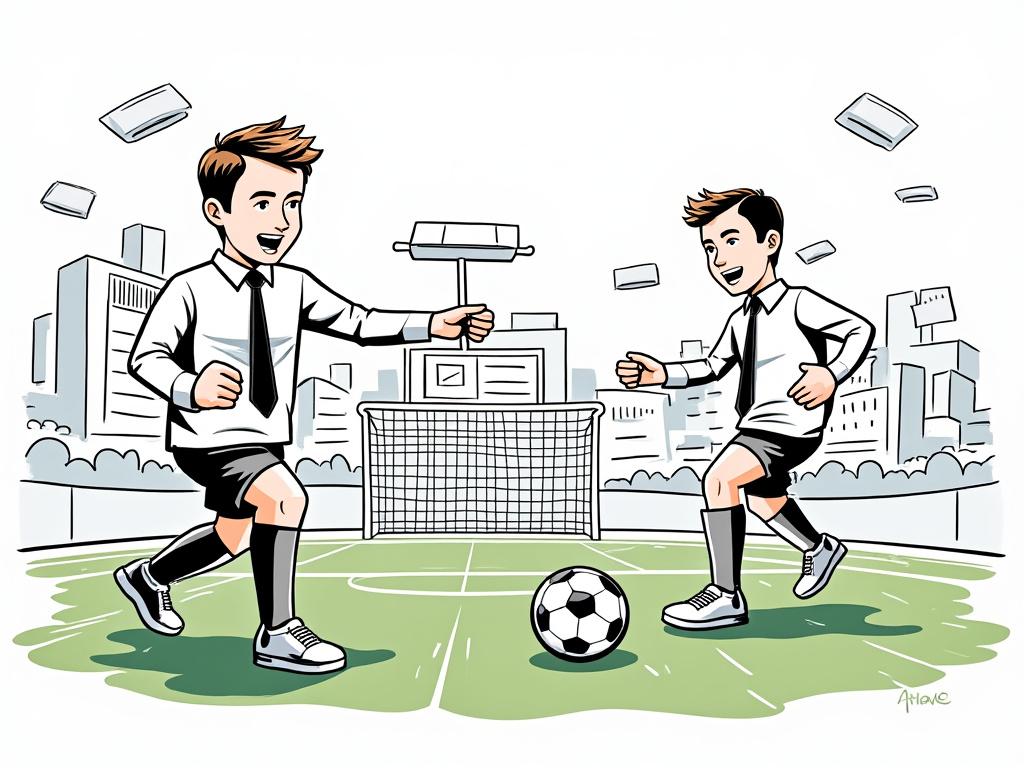
Football Leagues and Teams in Greece: Navigating the Passionate World of Greek Soccer
Reading time: 8 minutes
Ever wondered what makes Greek football tick beyond the famous European nights of Olympiacos and Panathinaikos? You’re about to discover a fascinating ecosystem where ancient rivalries meet modern ambitions, and where passionate fans create some of Europe’s most electrifying atmospheres.
Table of Contents
- Understanding Greek Football’s Structure
- Super League Greece: The Premier Division
- The Big Three: Olympiacos, Panathinaikos, and AEK Athens
- Emerging Powers and Regional Forces
- Fan Culture and Stadium Atmosphere
- Navigating Modern Challenges
- Your Guide to Greek Football’s Future
- Frequently Asked Questions
Understanding Greek Football’s Structure
Greek football operates through a well-defined pyramid system that reflects both tradition and modern sporting governance. At the apex sits Super League Greece, featuring 14 teams competing for the championship and European qualification spots.
Here’s how the system breaks down:
- Super League Greece (Tier 1): 14 professional clubs
- Super League 2 (Tier 2): Two groups of 12 teams each
- Gamma Ethniki (Tier 3): Regional divisions across Greece
- Delta Ethniki (Tier 4): Local amateur leagues
The promotion and relegation system ensures competitive balance, though financial constraints often complicate club movements between divisions. This structure has evolved significantly since Greece’s EU membership, particularly after the country’s surprising Euro 2004 victory sparked nationwide football enthusiasm.
Super League Greece: The Premier Division
Super League Greece represents the pinnacle of domestic football, where 14 clubs battle through a unique playoff system that determines champions, European spots, and relegation. The season typically runs from August to May, culminating in dramatic playoff rounds.
Championship Playoff Format
The league’s innovative approach divides teams after 26 regular season matches:
- Championship Group: Top 6 teams compete for the title and European places
- Relegation Group: Bottom 8 teams fight to avoid the drop
This system intensifies competition and ensures meaningful matches throughout the season. Teams carry half their regular season points into the playoffs, adding strategic complexity that keeps fans engaged until the final whistle.
European Qualification Pathways
| Position | Competition | Entry Round | Prize Money Potential | Prestige Level |
|---|---|---|---|---|
| 1st Place | Champions League | 2nd Qualifying Round | €15-30 million | Highest |
| 2nd Place | Europa League | 2nd Qualifying Round | €3-8 million | High |
| 3rd Place | Conference League | 2nd Qualifying Round | €1-3 million | Moderate |
| Cup Winner | Europa League | 2nd Qualifying Round | €3-8 million | High |
The Big Three: Olympiacos, Panathinaikos, and AEK Athens
Greek football’s landscape is dominated by three historic powerhouses whose rivalries transcend sport, reflecting deeper cultural and political divisions within Greek society.
Olympiacos: The Piraeus Dynasty
Based in Piraeus, Olympiacos stands as Greece’s most successful club with over 45 league titles. Their Karaiskakis Stadium transforms into a cauldron of red and white passion, particularly during European nights that have seen victories over Arsenal, Manchester United, and Atletico Madrid.
Key Achievements:
- Record 47 league championships
- Multiple Champions League group stage appearances
- Strong youth academy producing international talent
Panathinaikos: The Green Machine
Representing Athens’ upper-class districts, Panathinaikos boasts the distinction of being the only Greek club to reach a European Cup final (1971). Their OAKA Stadium hosts some of the most intense derbies in world football.
Despite recent financial struggles, Panathinaikos maintains fierce loyalty from supporters who create spectacular tifo displays. The club’s basketball section has actually achieved more recent European success, winning six EuroLeague titles.
AEK Athens: The Two-Headed Eagle
Founded by Greek refugees from Constantinople, AEK carries unique historical significance. Their OPAP Arena represents modern stadium development in Greece, offering fans a premium matchday experience while maintaining traditional atmosphere.
Big Three Dominance Comparison (Last 20 Years)
Emerging Powers and Regional Forces
While the Big Three dominate headlines, several clubs challenge the established order through smart management and community investment.
PAOK Thessaloniki: Northern Pride
Thessaloniki’s PAOK has emerged as the primary challenger to Athens’ hegemony. Their 2019 championship drought-breaking triumph sparked nationwide attention, while consistent European participation has raised their profile internationally.
PAOK’s success story demonstrates how strategic planning can compete with traditional powerhouses. Their Toumba Stadium creates one of Europe’s most intimidating atmospheres, particularly for visiting teams unfamiliar with Greek football passion.
Aris Thessaloniki and Regional Representation
Aris represents Thessaloniki’s working-class identity, maintaining fierce rivalry with PAOK while developing young talent. Their academy has produced several players who later starred for Greece’s national team.
Other notable regional forces include:
- Atromitos: Athens suburban club with European ambitions
- Asteras Tripolis: Small-town success story reaching European competitions
- OFI Crete: Island representation with passionate local support
Fan Culture and Stadium Atmosphere
Greek football culture extends far beyond match results, encompassing political expression, social identity, and community belonging. Understanding this cultural dimension is crucial for anyone wanting to truly appreciate Greek football.
The Gate System
Greek clubs organize supporters through “gates” (πύλες), structured fan groups that coordinate chants, displays, and travel. These organizations function as cultural institutions, preserving club traditions while adapting to modern supporter needs.
Each gate maintains distinct identity:
- Gate 7 (Olympiacos): Known for maritime-themed displays reflecting Piraeus heritage
- Thugs (Panathinaikos): Controversial name but passionate support throughout difficulties
- Original 21 (AEK): References club’s 1924 founding with Byzantine symbolism
Matchday Rituals and Traditions
Greek football matches begin hours before kickoff with elaborate preparation rituals. Fans gather in neighborhood tavernas, discussing tactics while sharing traditional foods. This social aspect transforms football from entertainment into community celebration.
For those considering relocating to Greece and experiencing this culture firsthand, many choose to buy house in greece in areas near their favorite clubs, becoming part of these passionate communities.
Navigating Modern Challenges
Greek football faces significant obstacles that require strategic solutions from clubs, leagues, and governing bodies.
Financial Sustainability Crisis
The 2008 financial crisis severely impacted Greek football, forcing clubs to restructure operations while maintaining competitive standards. Many teams still struggle with:
- Salary payment delays affecting player morale and performance
- Infrastructure maintenance costs limiting stadium improvements
- Youth development budgets reducing long-term competitiveness
Success Story: Olympiacos navigated these challenges through strategic partnerships with international investors while maintaining Greek identity. Their model demonstrates how clubs can achieve financial stability without losing cultural authenticity.
Talent Retention and Development
Greece produces exceptional football talent, but economic pressures force early departures to foreign leagues. Players like Kostas Tsimikas (Liverpool) and Giorgos Masouras represent successful development stories, though their early exits limit domestic league quality.
Innovative Solutions:
- Partnership agreements with European clubs for player development
- Improved academy facilities focusing on technical skills
- Salary cap implementations encouraging competitive balance
Your Guide to Greek Football’s Future
Greek football stands at a crossroads where tradition meets modernization demands. Understanding these dynamics helps predict where the beautiful game is heading in this passionate Mediterranean nation.
Strategic Roadmap for Sustainable Growth
1. Embracing Technology Integration
Modern clubs are implementing data analytics for player recruitment and performance optimization. VAR technology introduction has improved officiating standards, while digital platforms expand global fan engagement.
2. Youth Development Revolution
Investment in academy infrastructure creates pathways for young talent while reducing transfer dependency. Clubs partnering with international academies gain technical expertise while maintaining Greek football philosophy.
3. Stadium Experience Enhancement
New venue developments like AEK’s OPAP Arena set standards for fan experience improvements. These investments attract families and casual supporters, expanding the traditional fanbase demographic.
4. International Marketing Expansion
Greek clubs are exploring global markets, particularly targeting diaspora communities in Australia, USA, and Germany. Social media strategies showcase Greek football culture to international audiences.
5. Financial Fair Play Compliance
Implementing sustainable financial practices ensures long-term viability while maintaining competitive integrity. Clubs learning from European best practices adapt these models to Greek football realities.
Emerging Trends to Watch
The integration of women’s football is gaining momentum, with several Super League clubs establishing female teams. This development reflects broader social changes while creating new revenue opportunities and community engagement.
Additionally, eSports partnerships are connecting traditional clubs with younger demographics, demonstrating how Greek football adapts to digital entertainment trends without losing its essential character.
As Greek football evolves, it maintains the passionate spirit that makes it unique while embracing changes necessary for growth. Whether you’re a lifelong supporter or discovering Greek football for the first time, this journey promises excitement, drama, and unforgettable moments that define the beautiful game’s Mediterranean expression.
What aspect of Greek football culture resonates most with your own sporting passions, and how might these lessons apply to football development in your region?
Frequently Asked Questions
How many teams get relegated from Super League Greece each season?
Two teams are relegated from Super League Greece to Super League 2 each season. The bottom two teams from the relegation group playoff automatically drop down, while the third-lowest team may face a playoff against a Super League 2 team depending on the specific season’s regulations.
What makes Greek football derbies so intense compared to other countries?
Greek derbies combine sporting rivalry with deep social, political, and regional identities. The Olympiacos-Panathinaikos clash represents working-class Piraeus versus upper-class Athens, while PAOK-Aris reflects Thessaloniki’s internal divisions. These matches often feature elaborate choreographed displays, passionate singing, and atmospheres that rival any European competition.
Can foreign players easily adapt to Greek football culture and playing style?
Foreign players typically need 6-12 months to fully adapt to Greek football’s unique combination of technical skill, physical intensity, and passionate fan pressure. Successful adaptation requires understanding local customs, learning basic Greek phrases for communication, and respecting the cultural significance clubs hold in their communities. Players who embrace this cultural immersion generally perform better and gain stronger fan support.

Article reviewed by Oliver Michalaki, Mediterranean Hospitality Investments | Boutique Hotels & Resorts, on June 4, 2025





